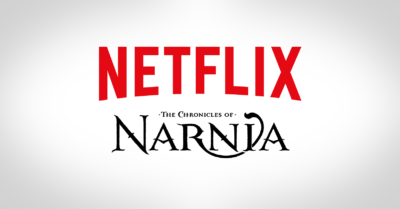Disney Plans a Passion-Style Marketing Campaign
Disney sets out to make The Passion for kids
By Chris Hastings and Charles Laurence in New York
Walt Disney is to promote its $100 million adaptation of C S Lewis’s The Lion, the Witch and the Wardrobe as a “Passion of the Christ for kids” in an attempt to secure worldwide Christian support for the film.
Disney executives have organised private meetings with several church groups in America to emphasise the themes of Christian redemption and sacrifice contained in the film, which will open in December with an all-star cast.
They have also hired a public relations company to market the film directly to Christian groups to ensure that the powerful evangelical movement, which is particularly strong in America, is happy with the content.
The film, which stars the British actors Tilda Swinton, who will play the White Witch, and Brian Cox, who will provide the voice of Aslan the lion, will be the first in a series of Disney blockbusters inspired by the seven books in the Narnia series, whose author was known for his strong Christian beliefs.
Lewis made no secret of the fact that the epic children’s stories were Christian allegories and that Aslan, whose death and resurrection is pivotal to the saga, was a Christ-like figure.
When it emerged in 2001 that Disney would be co-producing the film, there were fears that the studio and Andrew Adamson, the film’s director, who made Shrek and Shrek 2, would produce a secular version of the book, which was first published in 1950.
Now, however, some fans of the Narnia novels, which have sold more than 85 million copies worldwide, say that Disney could be in danger of over-emphasising the religious elements of the stories.
Internet message boards set up by Lewis enthusiasts are cluttered with complaints by people worried about the likely content. Others have expressed concern that cinemas will be block-booked by Christians or that audiences will be targeted by evangelicals looking for converts.
Such protests have, however, gone largely ignored because harnessing the support of Christian groups is regarded by Hollywood as an important means of securing box-office success.
There are an estimated one billion Catholics around the world, and according to the Church of England, there are 70 million Anglicans. America’s census bureau said 159 million US citizens describe themselves as Christians.
Mel Gibson’s The Passion of the Christ has taken than $600 million (£311 million) at the box office since its release last year, principally because of the large number of Christians who went to see the film. Similarly, the animated adventure The Polar Express, which received poor reviews, became a hit after producers emphasised its Christian credentials.
In an effort to ensure that the Narnia film reaches a similar audience, Disney has hired Motive Marketing, a public relations company that specialises in reaching out to faith groups and was widely credited with the success of The Passion of the Christ. It has shown clips from the film to representatives from church groups and religious media. The strategy has already met with enormous success.
Jim Burns, the president of the HomeWord radio station in San Francisco, which claims to broadcast to a million Christian families a day, said that his station would be encouraging its listeners to see the film.
“We are very, very optimistic about what Disney is doing with the film. Our people have seen some footage and it is wonderful from the Christian point of view,” he said.
“The Christian community will provide opportunities for people to take their kids to this movie through block-booking and church outings and we will be making sure that Christians go in droves. Then we and other organisations will give people who listen to our station and go to our website the opportunity to use this movie as a tool for learning in the family.”
Kyle Fisk, an executive administrator at the National Association of Evangelicals, which represents 39 million churchgoers, said that the film would win the backing of churches if it stayed true to what he called “one of the great stories of the Christian faith”.
“There is a big connection between this film and The Passion of the Christ. Mel Gibson proved you can make a film with moral values which could be embraced by people with faith. Hollywood is now waking up to the fact that people want this kind of entertainment. If The Lion, the Witch and the Wardrobe is a fabulous movie then we are going to see it used in churches, youth groups and outreach programmes.
“We are committed to using elements of popular culture to underline our message. We are committed to making it hard for people to go to hell.”
The film is also being co-produced by Douglas Gresham, the stepson of C S Lewis, who runs a religious retreat in Dublin. He insisted that the film was faithful to the book and would be enjoyed by Christians and others. “I am a committed Christian and I am very happy with the script,” he said.
Sarah Arthur, who helps to organise an annual C S Lewis festival in Michigan, said: “Lewis, himself, in his letters to children was very specific about the faith elements being deliberate. I can’t imagine a secular or neutral version. It would be like taking the mythological elements out of The Lord of the Rings films.” The Rt Revd Michael Langrish, the Bishop of Exeter, said a faithful adaptation could not help but be a Passion of the Christ for children.
“You can not understand the story in The Lion, The Witch and the Wardrobe without reference to God,” he said. “One of the key themes of the book is that for the forces of good to triumph over evil it is not enough that they are simply stronger. They can only triumph through grace and sacrifice.”
William Nicholson, whose play Shadowlands explored Lewis’s relationship with the poet Joy Davidson Gresham, said there was a need for caution. “There can be no doubt that the books contain Christian allegory. But I think the majority of people read them as wonderful children’s stories. I think he would have been distressed if he thought they were being introduced to the stories in any other way.”
Disney and Motive Marketing declined to comment to The Sunday Telegraph on the film’s content.
This story was originally published at The Sunday Telegraph





